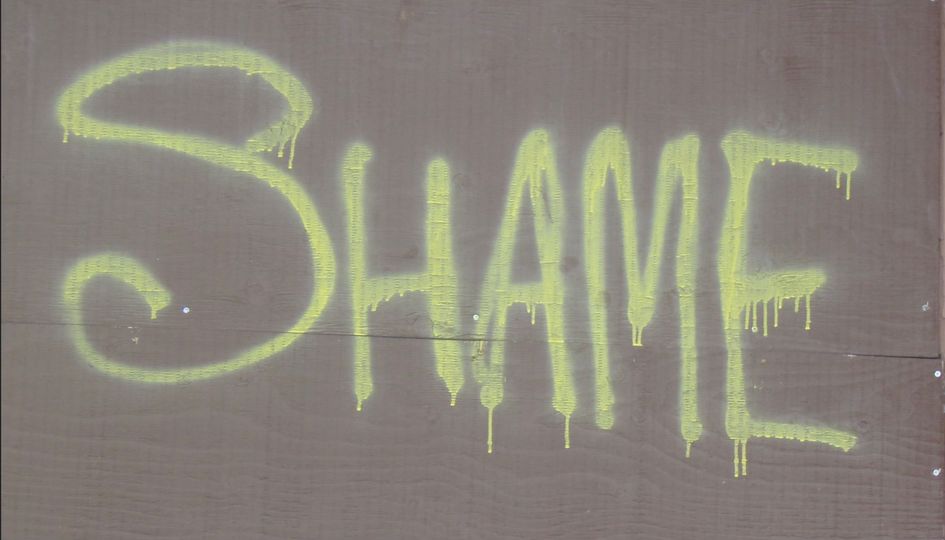This is a guest post by Jay Hellings, one of our therapists.
What is shame?
Shame is the hide-yourself-away emotion. It’s what you feel when you believe that you are unacceptable to other people. It might happen after you do something that you decide was awful, but it’s fundamentally about how you feel about yourself, not the thing you did. When you feel guilt, regret or remorse, you might reach out to people to try and make amends, but shame tells you that you don’t deserve the chance to do that. You might find yourself pushing the rest of the world away, or trying to convince someone that what you did was okay because the alternative feels unbearable.
Why do we feel shame?
Given how exquisitely painful shame is, it might seem baffling that we evolved to feel shame at all. In the right situation, shame is extremely useful. When you are part of a mutually supportive group in a dangerous environment, angering the group could result in your isolation and early death. For most people making decisions in that situation, imagining the feeling of being rejected by the group is a painful experience. That feeling of rejection is shame. If you can feel shame (and not everyone can) then it helped your ancestors to keep the goodwill of their community.
Why do I feel shame so often?
Many things can “rewire” us to experience excessive shame. We could call all these things “trauma” but many people think of trauma as only single, powerful events like being in a road collision or losing a caregiver at an early age. Survivors of this kind of trauma can sometimes feel deep shame, but that’s not the only route to excessive shame. We might experience something so often that we consider it completely normal and yet it rewires us to expect rejection, to be easily shamed.
I have ADHD, a condition that can include impulsive behaviour. People with ADHD are likely to have been criticised many more times in their childhood than other people because of their impulsivity. This might be why most people who have ADHD report experiencing Rejection Sensitive Dysphoria (RSD). Back when I still experienced RSD, I thought of it as hair-trigger shame; the slightest criticism can feel like a kick in the guts, a feeling of being unacceptable, of having to justify ourselves, or of wanting the ground to open up and swallow us. Regardless of whether you have ADHD, you might experience something similar.
Once we are primed to expect shame, we might find ourselves being hyper-vigilant, always wary around other people in case they shame us. Another way to describe this would be Social Anxiety. This fear can be just as painful as shame, probably more so because (with our wonderful, human imagination and creativity) we can see the potential for being shamed all the time, not just when we do screw up.
What can I do about my shame?
There are several things that helped me to overcome the excessive shame that I grew up with. Similar things might help you too. One of those things was Gestalt Therapy. Gestalt was different from the counselling I had tried before. As well as listening and showing me empathy, my therapist actively found ways to support me in our sessions, ways to increase the choices available to me. They helped me to find my own wisdom, my own satisfying ways to experience life. I gained so much from this type of therapy that I felt able to train as a Gestalt psychotherapist, a kind of training that is itself healing.
Self-Compassion practice was another way that I experienced healing. This type of practice is about finding ways to offer kindness to ourselves. If we have experienced a lot of shame then this can be very challenging. We might believe that we don’t deserve kindness, least of all from ourselves. Like all healing practices, we might need to start small and build up slowly.
What is my biggest challenge in healing from excessive shame?
If you experience shame frequently, then you might feel like you don’t deserve help or support or kindness. Surely those things should be going to someone more deserving? After all, there’s nothing really terrible in your life, is there? That’s the kind of thing that shame can say to us, that we’re just being silly, that anyone would laugh at the idea that we needed help. If you experience something like this, then your biggest challenge is to say, “Please help me.”
Jay Hellings is
- A senior trainee Gestalt psychotherapist
- Experienced at working with shame
- Available for new clients now

